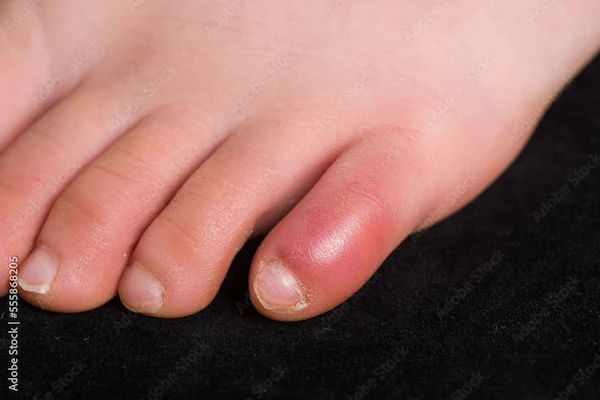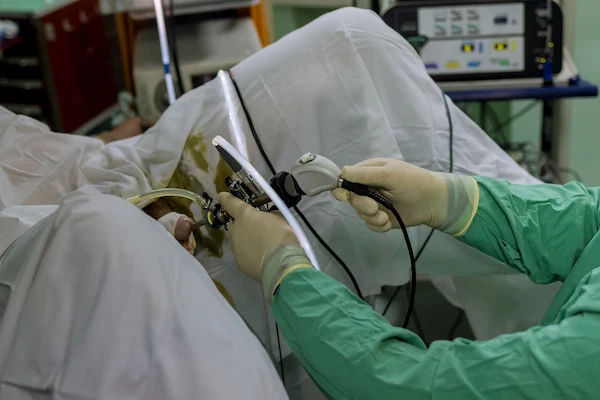Guide to World Sleep Day
Celebrate World Sleep Day with tips and strategies for better rest. Learn how healthy sleep habits improve mood, energy, and overall well-being.


Introduction
Sleep is not a luxury; it's a biological necessity. Yet, in our fast-paced, hyper-connected world, a good night's rest often feels like a distant dream. Millions worldwide struggle with sleep issues, impacting their health, happiness, and productivity. This is where World Sleep Day comes in a global call to action to prioritise sleep health. This annual event, organised by the World Sleep Society, aims to celebrate sleep, raise awareness of its importance, and help those with sleep problems. This comprehensive guide will delve into the significance of World Sleep Day, explain why sleep is fundamental to your well-being, identify common sleep disorders, and provide you with a practical, actionable plan to achieve the restorative sleep you deserve. Let's transform the way you rest.
What is World Sleep Day?
World Sleep Day is an internationally recognised awareness event held annually on the Friday before the Spring Vernal Equinox. It brings together sleep professionals, healthcare providers, and the public to discuss and address all things related to sleep.
The History and Mission
First celebrated in 2008, World Sleep Day was created by a group of dedicated healthcare providers and members of the medical community within the World Sleep Society. Their mission is threefold:
1. To reduce the burden of sleep problems on society through better prevention and management of sleep disorders.
2. To promote sleep health and well-being through education and advocacy.
3. To encourage research into sleep and its vital role in our overall health.
The Annual Theme: A Focus for Change
Each year, World Sleep Day is centered around a specific theme, such as "Sleep Equity for Global Health" (2024) or "Quality Sleep, Sound Mind, Happy World" (2023). This theme focuses efforts on a particular aspect of sleep health, guiding the content of seminars, public events, and educational materials distributed worldwide. The theme acts as a rallying point, creating a unified global conversation about improving sleep quality.
Consult a Sleep Medicine Specialist for the best advice
Why Sleep is Non-Negotiable for Health
Understanding the importance of sleep for health is the first step toward prioritising it. Sleep is an active state where critical processes for physical and mental repair occur.
The Physical Reboot: Repair and Recovery
During deep sleep, your body goes into repair mode. Tissue growth and muscle repair occur, energy is restored, and key hormones are released. This includes human growth hormone, essential for development and cell repair, and cytokines, which help the immune system fight off infections. Consistently skipping sleep disrupts these processes, leaving you more vulnerable to illness, weight gain, and chronic conditions like heart disease and diabetes.
The Mental Reset: Memory and Mood
Sleep is crucial for cognitive function. During the REM (Rapid Eye Movement) stage of sleep, your brain processes and consolidates memories from the day, moving them from short-term to long-term storage. This is essential for learning. Furthermore, sleep regulates neurotransmitters and stress hormones. A lack of sleep is directly linked to increased anxiety, irritability, and a higher risk of depression. It impairs judgment, concentration, and productivity.
The Long-Term Risks of Sleep Deprivation
Chronic sleep deprivation is a serious public health issue. Research has consistently shown that it's associated with an increased risk of:
- Hypertension (high blood pressure)
- Weakened immune system
- Weight gain and obesity
- Type 2 Diabetes
- Cardiovascular disease
- Mental health disorders
Prioritising how to improve sleep quality isn't just about feeling less tired; it's a foundational pillar of long-term disease prevention.
Common Sleep Stealers: Disorders You Should Know
Sometimes, poor sleep is a symptom of an underlying disorder. Recognising the signs is the first step toward seeking help.
Insomnia: The Trouble Falling and Staying Asleep
Insomnia is the most common sleep disorder, characterised by difficulty falling asleep, staying asleep, or waking up too early and not being able to go back to sleep. It can be short-term (often linked to stress) or chronic. If your sleeplessness persists for more than three nights a week for three months, it's time to seek professional advice.
Sleep Apnoea: More Than Just Loud Snoring
Sleep apnoea is a serious disorder where breathing repeatedly stops and starts during sleep. The most common type, obstructive sleep apnoea (OSA), occurs when throat muscles relax. Loud snoring, choking or gasping sounds, and excessive daytime sleepiness are hallmark symptoms. Left untreated, it significantly increases the risk of heart attack, stroke, and hypertension. Diagnosis often involves a sleep study.
Restless Legs Syndrome (RLS) and Others
RLS causes an uncontrollable urge to move the legs, usually due to an uncomfortable sensation, which typically occurs in the evening or nighttime. Other disorders include narcolepsy (sudden attacks of sleep) and parasomnias like sleepwalking. If you suspect you have a sleep disorder, a proper medical diagnosis is essential.
Your Action Plan for Superior Sleep Hygiene
Sleep hygiene refers to the habits and practices that are conducive to sleeping well on a regular basis. Here’s your actionable plan.
Crafting the Perfect Sleep Sanctuary
Your bedroom environment is critical. Optimise it by:
- Keeping it cool: Aim for a temperature around 65°F (18.3°C).
- Making it dark: Use blackout curtains and cover electronic lights.
- Ensuring it's quiet: Use earplugs or a white noise machine to block disruptive sounds.
- Reserving the bed for sleep and intimacy: Avoid working or watching TV in bed.
The Wind-Down Routine: Signaling Your Brain for Sleep
A consistent pre-sleep routine tells your brain it's time to power down.
- Digital Sunset: Power down all screens (phones, TVs, laptops) at least 60 minutes before bed. The blue light emitted suppresses melatonin production.
- Relax: Try reading a physical book, taking a warm bath, practicing light yoga stretches, or meditation.
- Be Consistent: Go to bed and wake up at the same time every day, even on weekends. This stabilises your circadian rhythm.
Daytime Habits That Affect Your Night
What you do during the day profoundly impacts your night.
- Get Morning Light: Exposure to natural sunlight within an hour of waking helps regulate your sleep-wake cycle.
- Exercise Regularly: But try to finish workouts at least 2-3 hours before bedtime.
- Watch Your Diet: Avoid large meals, caffeine, and alcohol close to bedtime. While alcohol may make you drowsy
initially, it disrupts sleep later in the night.
Conclusion
World Sleep Day serves as an vital annual reminder that sleep is not a passive state but an active, essential component of our overall health. It’s a pillar of wellness as crucial as nutrition and exercise. By understanding the profound importance of sleep for health, recognising the signs of potential disorders, and implementing strong sleep hygiene practices, you can take control of your rest and, by extension, your life. Improving your sleep is an investment in your physical vitality, mental clarity, and emotional resilience. This World Sleep Day, make a pledge to prioritise your rest. Start with one or two changes from this guide, and gradually build habits that lead to a happier, healthier, and more well-rested you. If you've implemented these strategies and still struggle with chronic fatigue or other symptoms, consider reaching out to a specialist. Apollo24|7 offers convenient access to sleep specialists and other doctors for online consultations, helping you get to the root of the problem.
Consult a Sleep Medicine Specialist for the best advice
Consult a Sleep Medicine Specialist for the best advice

Dr. Shiba Kalyan Biswal
Pulmonology Respiratory Medicine Specialist
18 Years • MBBS,MD,DM(AIIMS Delhi)
Gurugram
APOLLO SUGAR CLINICS GURUGRAM, Gurugram

Dr. Suresh G
General Physician/ Internal Medicine Specialist
25 Years • MBBS, MD
Bangalore
Apollo Clinic Bellandur, Bangalore
(225+ Patients)

Dr. Priya Sharma
Pulmonology/critical Care Specialist
9 Years • DM (PULMONARY MEDICINE), DNB, EDARM, MNAMS
Delhi
Apollo Hospitals Indraprastha, Delhi
Dr Srinivas Rajagopala
Pulmonology Respiratory Medicine Specialist
20 Years • MBBS, MD (Int Med), DM (Pul & Crit Care), Fellowship in Lung Transplantation (Toronto)
Chennai
Apollo Cancer Speciality Hospital, Teynampet, Chennai

Dr. Arjun Ramaswamy
Pulmonology Respiratory Medicine Specialist
9 Years • MD (RESPIRATORY MEDICINE), DM (PULMONARY MEDICINE, CRITICAL CARE AND SLEEP MEDICINE)
Mumbai
Apollo Hospitals CBD Belapur, Mumbai
(75+ Patients)
Consult a Sleep Medicine Specialist for the best advice

Dr. Shiba Kalyan Biswal
Pulmonology Respiratory Medicine Specialist
18 Years • MBBS,MD,DM(AIIMS Delhi)
Gurugram
APOLLO SUGAR CLINICS GURUGRAM, Gurugram

Dr. Suresh G
General Physician/ Internal Medicine Specialist
25 Years • MBBS, MD
Bangalore
Apollo Clinic Bellandur, Bangalore
(225+ Patients)

Dr. Priya Sharma
Pulmonology/critical Care Specialist
9 Years • DM (PULMONARY MEDICINE), DNB, EDARM, MNAMS
Delhi
Apollo Hospitals Indraprastha, Delhi
Dr Srinivas Rajagopala
Pulmonology Respiratory Medicine Specialist
20 Years • MBBS, MD (Int Med), DM (Pul & Crit Care), Fellowship in Lung Transplantation (Toronto)
Chennai
Apollo Cancer Speciality Hospital, Teynampet, Chennai

Dr. Arjun Ramaswamy
Pulmonology Respiratory Medicine Specialist
9 Years • MD (RESPIRATORY MEDICINE), DM (PULMONARY MEDICINE, CRITICAL CARE AND SLEEP MEDICINE)
Mumbai
Apollo Hospitals CBD Belapur, Mumbai
(75+ Patients)
More articles from General Medical Consultation
Frequently Asked Questions
1. What is the theme for World Sleep Day 2025?
The official theme for World Sleep Day 2025 has not yet been announced by the World Sleep Society. It is typically revealed closer to the date. Check their official website for updates.
2. How many hours of sleep do I really need?
Sleep needs vary by age and individual. Most adults require 7-9 hours of quality sleep per night for optimal health and functioning. Listen to your body; if you wake up feeling refreshed and alert, you're likely getting enough.
3. I've heard of 'sleep debt.' Can I catch up on lost sleep on the weekends?
While sleeping in on weekends can help you feel temporarily less tired, it does not fully reverse the effects of chronic sleep deprivation. It can also disrupt your circadian rhythm, making it harder to fall asleep on Sunday night. The best strategy is consistent, adequate sleep nightly.
4. Are naps good for you?
Short naps (20-30 minutes) can be beneficial for improving alertness and mood without causing grogginess or interfering with nighttime sleep. Long or late-afternoon naps, however, can make it harder to fall asleep at night.
5. When should I talk to a doctor about my sleep problems?
You should consider consulting a doctor if your sleep problems are persistent (occurring most nights for over three weeks), cause significant daytime distress, or if you suspect an underlying condition like sleep apnoea (e.g., loud snoring, gasping for air).




